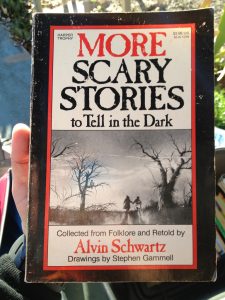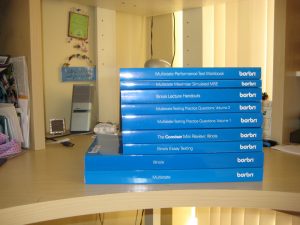Author: cbrown24
JAM3S
For my avatar I wanted to go with a basic look so he wouldn’t appear to be too intimidating but when need be he is not a force to be reckoned with. Drawing inspiration from the Rock, he is bald and wears a tank top to show his muscles as his powers are his super strength to aid him in fighting off other gunters or sixers. Along with his strength he is also quite tall and towers over most other avatars. By seeming less terrifying and coming off as a possible “friendly giant”, he can make alliances and work with others to further his hunt. He is of average intelligence but is very perceptive and can pick up on little hints that others may look past to help him decipher Halliday’s riddles and tests.![]()
Midterm
Cordell Brown
October 8, 2018
English 151
Comparative Article Essay
The internet has been a vital tool to making life in the twenty first century much more efficient and expedites the users access to information. Yet, there are those who believe that the internet is detrimental to our brains and makes us lazier. As the years go by and there’s more integration of the internet into our everyday lives, the effects it has on our brains are unknown, positively or negatively. The internet has benefited the education system and continues to do so as we make more strides to increase the technology we have.
On the side of the argument that the internet is hurting our brains, writer Nicholas Carr believes that it has damaged our ability to read longer texts and retain them. Attention to articles has decreased from the readers, even Carr said, “Now my concentration often starts to drift after two or three pages. I get fidgety, lose the thread, begin looking for something else to do” (Carr, paragraph 2). I can attest to this as I too feel that trying to read off a computer screen becomes increasingly less appealing the more I continue to do so. This issue can be a result of people associating the internet with efficiency and think they can quickly skim things and still get the same out of the article as if they read it. Carr sees the internet as a world full of distraction wherever you find yourself, on news outlets, emails, shopping websites, etc. These distractions manifest themselves through hyperlinks, pop up ads, notifications for applications, and other advertisements used to break articles or line them on the side. An example of this is, “A new e-mail message, for instance, may announce its arrival as we’re glancing over the latest headlines at a newspaper’s site. The result is to scatter our attention and diffuse our concentration.” (Carr, paragraph 19). I can see how this can be seen as a distraction but I don’t feel it is nearly as disruptive to our attention as he makes it seem. Simply looking at the notification and deciding if it’s worth looking at in the moment takes all of maybe five seconds, and then you can go right back to what you were doing. Interestingly enough, Carr even praises the internet in his article, “The Web has been a godsend to me as a writer. Research that once required days in the stacks or periodical rooms of libraries can now be done in minutes.” (Carr, paragraph 3). This is the main defense for the internet, it has made tasks such as this one become something we can do at any time in the matter of seconds. But then Carr goes on to say this, “My mind now expects to take in information the way the Net distributes it: in a swiftly moving stream of particles.” (Carr, paragraph 5). This isn’t an issue of the internet affecting our brain, it’s more so accountability of the reader to ensure they retain the information and don’t rely solely on their skimming. To fix these issues in a classroom setting, I would suggest providing a platform where there are ad blockers on the devices the students have if provided by the school. This would eliminate the issue of advertisements distracting the student from getting their work or research done.
There are also those that support the internet and don’t believe that there is such a big issue with it’s incorporation into education. Writer Paul La Farge suggests that the fears that people are currently having in regards to technology have been mentioned before. He believes that if anything, with the correct method in which it is executed, “ [the internet] has the potential to expand and augment the very contemplative space that we have prized in ourselves ever since we learned to read without moving our lips.” (La Farge, paragraph 4). With proper integration of the internet, he believes it will only enhance the part of our brain we have already set aside for reading and comprehension. Then La Farge brings up the fear that Socrates had in regards to writing in the fifth century and counters it with, “We may not keep the Iliad in our heads any longer, but we’re exquisitely capable of reflecting on it, comparing it to other stories we know, and forming conclusions about human beings ancient and modern.” (La Farge, paragraph 5). Fears of advancement ruining our current mental abilities has been something that has been going on for centuries, but each time there’s an advancement in technology we prevail on top. Using the technology to our advantage, not allowing the technology to become the only thing our minds rely on to do our thinking. Once again, he makes a reference to human history when he says, “… yet a quick look at the history of books suggests that we have been wandering off all along. When we read, the eye does not progress steadily along the line of text; it alternates between saccades—little jumps—and brief stops, not unlike the movement of the mouse’s cursor across a screen of hypertext” (La Farge, paragraph 6). Not only does this show that the internet isn’t the sole reason we skim but just accentuates that flaw in our nature when reading text. And in a study provided by the writer, “…a 2011 study by the cognitive scientists Rakefet Ackerman and Morris Goldsmith suggests that this may be a function less of the intrinsic nature of digital devices than of the expectations that readers bring to them.” (La Farge, paragraph 10). This backs up a point I made in the previous paragraph where I said it is an issue of the accountability of the user that they thoroughly read the text and don’t expect to get the same result out of skimming. My resolution to the issues that La Farge mentions for the non believers, hold accountability for how effective the information they retain is and don’t assume new technology is bad for our brains until there is viable proof to back that up.
Another aspect of technology that comes with the internet is the ability to multitask and effectively have more than one train of that at a time. In the article NOW YOU SEE IT by Cathy Davidson, she makes the comment, “Multitasking is the ideal mode of the twenty-first century, not just because of our information overload but because our digital age was structured without… one stream of information we pay attention to at a given moment” (Davidson, 6). We have so many various outlets to get our information from that trying to focus on just one would mean you miss out on what all the other ones have to offer. Another very accurate yet simple statement made by Davidson is, “You can’t take on a twenty-first-century task s with twentieth-century tools and hope to get the job done” (Davidson, 7). This sums up how important it is to keep up to date with modern technology as trying to write a research paper without the internet would take days if not weeks longer than if you had access to it like today’s society does. She also then brings up the broader range of influence has had on our world beside just education, “With the internet, we have seen dramatic rearrangements, in a little over a decade, in the most basic aspects of how we communicate, interact, gather knowledge of the world, develop and recognize our social networks and our communities, do business and exchange goods, understand what is true, and know what counts as worthy of attention.” (Davidson, 11). If it weren’t for the advancements in communication the simple luxury of being able to communicate with classmates or teachers in regards to work missed or questions on assignments would not be possible. Making school just that much more difficult if there were unsure aspects on an assignment or homework. Davidson wants integrate internet and technology more into our education system as she says, “So it’s long past due that we turn our attention to the institutions of schools and work to see how we can remake them so they help us, rather than hold us back.” (Davidson, 13). Allowing for a more welcomed merger of technology into our workplaces and schools, we could only benefit from fully utilizing technology to our advantage. Making schools more efficient with technology and added features with the internet would benefit the students along with the teachers to better the education process and introduce the kids to what the real world is like in the twenty-first-century.
The incorporation of technology into our schools and using the internet to our advantage only stands to benefit the students. As long as the kids are taught that skimming online readings are not effective and to read them like they would read a textbook. By teaching the younger generations now that the internet isn’t all about being quick and efficient, they won’t grow up skimming and expecting to breeze through text they read on a screen. This also prepares them for any line of work as it is very common for important documents to be shared via email and they will learn the ins and outs of the internet and other features it has to offer. Especially with technology seeming to be making leaps and bounds, many professions require understanding of online applications and functions that not a lot of students would choose to learn about on their own time.
Rhetorical Analysis of Is Google Making Us Stupid? What the Internet is doing to our brains
Nicholas Carr is the author of the article, Is Google Making Us Stupid? What the Internet is doing to our brains, and has written multiple other books about technology, business, and culture. His book, The Shallows: What the Internet is Doing to Our Brains, has been a piece for debate as it questions the effects on our thinking and ways we perceive things. Much of his writing is his criticism on our relationship and reliance on machines and technology in our lives. He also used to sit on the editorial board of advisers for Encyclopedia Britannica, steering board for the World Economic Forum’s cloud computing project, and worked at UC Berkeley as a writer-in-residence for the journalism school there. And has also received an award from the Media Ecology Association, the Neil Postman Award for Career Achievement in Public Intellectual Activity. Clearly a well versed writer on the topic of technology and the role it plays in our society along with the effects it has on us. (A writer of books, essays and ephemera)
The article is aimed towards 24-35 year old’s that use the internet for getting their information, recreational or for work. Since people within this age range are those that typically have been using technology like google for some time and know it well. They would also be the ones that would have the more prominent symptoms as younger kids are less likely to be constantly reading articles online. Also being the ones who would have professions more seriously, longer emails and documents that are surrounded by ads and other hyperlinks. And many people within this age range would be those that live a busy life and check the news via websites either on a computer or phone. As a result of this, they would be the most affected group from constantly being on either a computer or phone for work or leisurely purposes. With that said, it also makes them the target audience since it revolves around their lifestyle the most accurately. Opposed to the younger generation who don’t read articles online often or the older generation that doesn’t know how to navigate the internet as well, making it more difficult for those two groups to relate to the content of this piece.
The extensive use of the internet and the negative effects it has on our brain is the main message that Carr is trying to get across to the reader. He discusses how the accessibility of the information on the internet makes people lazier as they no longer have to go searching for it as hard. The way in which technology has impacted the brain is by making it more difficult for us to recall and retain information. This is caused by our cultures urge to make things more efficient and faster, which is the main purpose for technology. But as a result of connecting efficiency with reading, it is shown that those who use technology more tend to skim and not fully absorb the information in the article (Is Google Making Us Stupid? What the Internet is doing to our brains). He is bringing this issue to the forefront as technology continuously evolves and worsens the already evident problems with our memory.
Written on a website where it is common for other articles containing intellectual arguments similar to this one. The timing of the article was during a period where technology was rapidly evolving. With not many studies or much interest put into the long term effects of computer use, positive or negative, this was one of the first of its kind. Now bringing attention to the possible repercussions that extensive use of technology may cause to our society.
The genre in which this article falls under could be classified as primarily informative with the fact of how he revolves the piece around the negative effects. But could also be classified as being a little persuasive at the same time. This is shown through his bias of promoting a less dependent mind set on technology and reading online.
Being that the article is written on a website, there were many distractions pulling your attention away from the article. The writing by itself was not distracting as it was in black text and formatted like any other form of writing. But there were many ads on the side of the article as you scrolled down to read more. Also, ads were placed in between every four to five paragraphs. And they weren’t your typical small ads that the text could wrap around, they would take up majority if not all of your screen when you scrolled past. I found this to be distracting as they were clearly meant to grab your attention but not only did they do that, but it would also make it hard to focus on the topic of the prior paragraph after looking at a big moving ad. Typically these ads were videos, only one of the breaker ads was a small banner that didn’t take up majority of the screen when I read it.

Screenshot of one of the many massive ads, can barely see any text from article on whole screen
Learning Narrative
How I Learned
Learning in my household was a very important thing to my parents and they wanted to emphasize that to my sister and I from a young age. I am fortunate enough to have a very well-educated family, my mother attended Amherst College and her mother attended UPenn, where my aunt went and now my sister is attending now. Once my parents felt that we could retain what they tried to teach us, my parents would read to me and my sister before bed which then lead to us reading on our own together. And to make learning more enticing, my parents bought me and my sister games to play that had educational aspects within them. My dad would also make sure that even in the summer we were still doing something educational so we didn’t fall behind when we started school again. Along with just sitting at the dinner table and listening to the conversation being had, these aspects of my childhood developed me into being the student I am now.
Like many other children, books being read to me was the first taste of learning that I had from a young age. My parents would read to me, age 2, and my older sister, age 4, together at night, typically they read the Berenstain Bears to us. We loved those books and since my sister learned to read before I did, she would read the books to me as well when my parents couldn’t. I would then slowly pick up words and begin to sound them out and have my sister correct me since she had a basic knowledge of the words she could teach me new ones. Having both, my parents and my sister, read the books to me I could start to read the stories with some assistance a little earlier than most my age, around 3 and 4 years old. My parents also liked to hold me to similar standards that they held my sister to so that way I had a slight advantage. My grandmother also had a lot of the Berenstain Bears books at her house so when my parents were busy, my sister and I would read them together. Then once I was able to comfortably read those books on my own, I moved on to more difficult readings. I used to take out Scary Stories to Tell in the Dark from my elementary school’s library and loved to read those, even though they scared me pretty good. But those were some of the very few books I enjoyed reading when I could choose my own books. By having my parents and sister read to me, I was able to pick up reading with some ease as opposed to having me sit on the couch and just watch cartoons.
My fondest memory of learning was when I was the age of 5 when my parents brought home a V-Tech. I remember thinking at first that it was solely for fun and games like any other video game console is meant to be. But when I first started playing I quickly realized the games revolved around using logic and other mental skills to progress from level to level. The game I remember most was a game that had super heroes like Wolverine and Spiderman as the main character. You would go around doing many mini games as these characters and solve whatever problem was put in your path. One of these games had the objective of having to sort out various words as they fell down the screen and then put them in the right category of labelled bins. This game taught the player how to quickly decide what the words were and find the correct spot to put them in. Quick thinking was the skill that this game taught the player since they had to read the word and then match it with the right bin. Another game I recall very well was a game with Mickey Mouse, it followed him around as he had to get through a castle to save Minnie. This game was my favorite as there were mini games within it that incorporated timing and jumping from platform to platform while avoiding enemies. But the educational aspect of this game was the mini game that involved hand eye coordination along with literacy skills. The game involved words falling down the screen, and the player had to press the correct colored button on the controller as the word reached the bottom. Different colors on the pad meant whether the word was spelled correctly or not. This taught younger kids how to multitask in the sense of watching the screen and then knowing where each colored button was and then deciding if the word was spelled correctly or not. And the fact that the games were so fun for younger kids, they would keep playing repeatedly without even being aware that they were subliminally learning necessary skills. I know I would be glued to the screen for a long time just playing the same game constantly because I thought they were so fun and I wanted to be better than my sister. And it improved my spelling skills as I knew how to quickly identify when I spell something wrong or when someone else does.
One of my less enjoyable memories of learning was my dad giving me and my sister summer work booklets. These booklets were about 100-150 pages full of educational material that corresponded to the grade that my sister and I were entering the upcoming fall. Most distinctly, I remember the summer going into fourth grade, I was about 8 years old, the booklet had a lot of cursive in it. I was not too fond of cursive as I had, and still have, very bad handwriting so these exercises were especially difficult for me to complete. My dad would also be very thorough with his checking of our work, if he didn’t like the neatness of my writing, he would make me erase the whole page and start over. For at least an hour a day we had to work on these booklets or until we had reached a point where he felt that there was an adequate amount of progress made. Each booklet had a writing portion or some form of English along with math that was similar to what we already knew and some that would be introduced to us in the next grade. I despised these workbooks because I already didn’t like school to begin with, and now I was losing precious summer time to continue to do more school work. But in the end, I benefitted from being able to better my writing skills as there were even some prompts in the packet that my dad would read over and critique.
Because of my parents’ pressure on me and my sister to be educated and take our schooling seriously. Reading to us as young kids helped a lot with my reading skills along with other aspects of literacy for a good basis to grow off from once we began school. Making sure the games we played were also educational was another key factor in strengthening my developing mind for harder material I would learn in the future. And continuously working on something that related to school in the summer was another good tool to making sure that I stayed a good student even when classes weren’t in session. All these various pieces of my childhood are crucial to forming me to be the well educated person that I am today.



